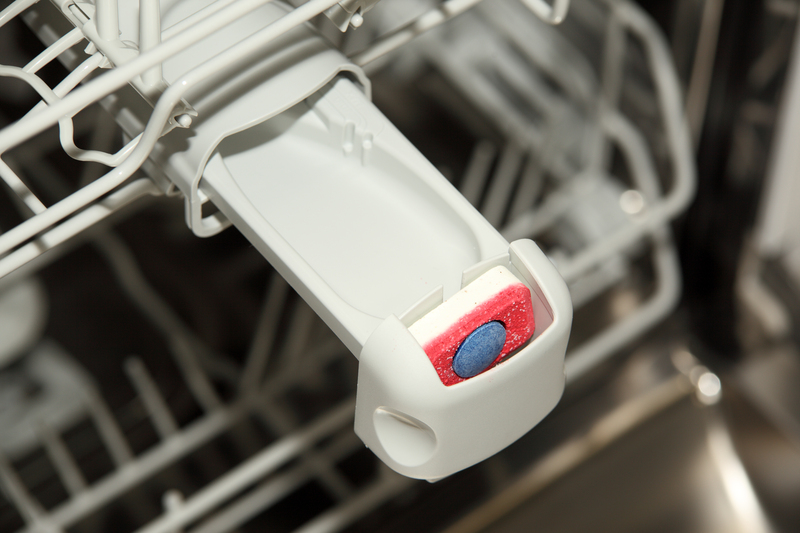Harness Effective Techniques to Beat Pet Odors
Posted on 06/10/2025
Harness Effective Techniques to Beat Pet Odors: A Comprehensive Guide
Pet owners know that lovable furry friends can sometimes come with unwanted pet odors that linger in homes, clothes, and furniture. But fear not! There's no need to sacrifice your comfort or cleanliness. With the right approach, you can eliminate pet odors effectively and maintain a fresh, welcoming space.
This detailed guide explores proven methods, expert tips, and practical insights to conquer pet smells once and for all. Whether you're a dog lover, cat parent, or have exotic companions, these techniques will empower you to tackle and prevent pet odors at their source.

Understanding the Nature of Pet Odors
Before jumping into odor-busting strategies, it's essential to comprehend why pet odors persist. Pet smells are usually caused by a combination of:
- Pet dander: Tiny flecks of skin that shed from animals.
- Body oils: Natural secretions, especially noticeable in dogs and cats with oily coats.
- Urine and feces: Even after clean-up, microscopic residues may linger.
- Saliva: Drool and saliva splatter on toys, bedding, or floors.
These particles can seep into carpets, upholstery, and even air vents, leading to persistent odors if not addressed correctly.
Why It's Important to Beat Pet Odors for Good
Persistent pet smells can cause more than just embarrassment--they may signal incomplete cleaning, lead to respiratory problems, or mask more serious health issues in pets. By harnessing effective deodorizing techniques, you protect not just your home's scent but its overall health and comfort.
Harnessing the Best Techniques to Remove Pet Odors
1. Prioritize Regular Cleaning and Maintenance
- Vacuum Frequently: Invest in a high-quality vacuum cleaner with a HEPA filter. Focus on carpets, upholstery, curtains, and even pet beds to remove dander and hair.
- Wash Pet Bedding Weekly: Use hot water and pet-safe laundry detergents to break down oils and residue.
- Clean Hard Floors and Surfaces: Use enzyme-based cleaners to mop tile or wood floors--these break down organic matter and neutralize smells at the molecular level.
2. Master the Power of Enzyme Cleaners
When it comes to beating stubborn pet odors, enzyme cleaners are powerful allies. These specialized products use natural enzymes to break down organic waste in urine, feces, vomit, and other residue, rendering the odor-causing particles harmless.
- Spot-Clean Accidents: Blot (don't rub) to absorb as much as possible, then treat with enzyme cleaner following the manufacturer's instructions.
- Carpet and Upholstery Treatments: For persistent odors in soft furnishings, choose enzyme solutions suitable for fabric and always spot-test first.
Pro tip: Avoid using ammonia-based cleaners, as these can mimic the smell of urine to pets and invite repeat accidents.
3. Harness Nature's Tools: Baking Soda and Vinegar
Both baking soda and white vinegar are natural, non-toxic, and highly effective at neutralizing odors:
- Sprinkle Baking Soda: Apply generously to carpets, rugs, or pet beds before vacuuming. It absorbs smells and refreshes fabrics.
- Vinegar Solution: Mix equal parts white vinegar and water in a spray bottle. Spritz on affected areas (avoid delicate fabrics) and let dry.
Baking soda can also be placed in open containers around your home to passively absorb lingering odors.
4. Deep Clean Pet-Friendly Furniture and Soft Surfaces
- Steam Cleaning: Periodically deep-clean rugs, mattresses, and sofas with a pet-safe steam cleaner to eradicate embedded odors.
- Cushion Covers and Throws: Choose washable, removable covers for sofas or chairs and wash routinely.
5. Maintain and Groom Your Pets Regularly
Personal hygiene plays a pivotal role in controlling pet odors. Consider:
- Regular Baths: Use a high-quality, breed-appropriate pet shampoo.
- Brushing: Prevent excess shedding and the buildup of oils.
- Dental Hygiene: Brush your pet's teeth or provide dental treats to avoid bad breath and oral bacteria transfer.
Underscoring the importance of routine vet checkups: Unexpected or strong odors can be a sign of medical concerns--never ignore new or persistent smells.
Prevention: Key Habits to Keep Pet Odors Away
1. Litter Box and Enclosure Management
- Scoop Daily: Remove waste from litter boxes or cages every day.
- Change Litter Often: Replace litter at least weekly and disinfect the box every month.
- Ventilate: Keep the area aired out whenever possible.
2. Designate Pet-Free Zones
- Limit Bedrooms: Keep certain rooms or furniture off-limits to minimize odor spread.
- Air Purifiers: Invest in HEPA filter air purifiers to actively filter out pet dander and odors--especially in shared spaces.
3. Target Problem Spots Immediately
The sooner you deal with accidents or accidents, the less likely they'll become recurring odor sources.
- Keep Supplies Handy: Store enzyme sprays, paper towels, and cleaning cloths in easily accessible places.
- Address Areas of Marking: For pets prone to marking, address behavioral and training concerns and clean thoroughly to remove any scent traces.
Advanced Solutions for Persistent Pet Odors
Professional Odor Removal Services
If DIY methods aren't working or you're dealing with a severe issue like pet urine that's seeped into hardwood or drywall, consider consulting professionals. Professional odor removal services use specialized equipment and chemicals, such as ozone treatments, to entirely eliminate stubborn smells.
Upgrade Home Ventilation and Air Quality
Sometimes the right airflow is the secret to keeping pet odors at bay. Ensure:
- Regularly open windows and doors for cross-ventilation.
- Change HVAC and furnace filters as recommended.
- Dehumidifiers can discourage bacteria and mold (often exacerbated by pet stains) from thriving.
Choosing the Right Products to Beat Pet Odors
What to Look for in Pet Deodorizing Products
- Effectiveness: Seek products backed by reviews or vet recommendations.
- Ingredients: Opt for natural, biodegradable formulas--friendly for both pets and people.
- Multipurpose: Some sprays or powders can be used on multiple surfaces, from fabric to hard floors.
- Non-Toxic: Always ensure products are safe if licked or chewed by pets.
Popular Pet Odor-Fighting Products
- Enzyme Sprays: The gold standard for breaking down organic residues.
- Activated Charcoal: Absorbs odors and can be used near litter boxes or pet cages.
- Odor-Neutralizing Candles and Air Fresheners: Make sure they are pet-safe.
- HEPA Filter Air Purifiers: Traps dander, dust, and smells from the air.
Natural Remedies and DIY Solutions to Eliminate Pet Smells
In addition to commercial products, some home remedies can neutralize pet odors safely and efficiently:
- Essential Oils: Lavender, lemongrass, or tea tree oil (use with caution and keep away from pets who may be sensitive) can be diffused to add freshness.
- Sunlight: Sun-dry pet bedding and toys to kill odor-causing bacteria naturally.
- Baking Soda Sachets: Place small fabric bags of baking soda in closets or near pet zones.
- Lemon Juice: Mix lemon juice and water for a quick deodorizing surface wipe.
Always check with your vet before using essential oils or new products in your pet's environment to ensure safety!
The Benefits of Effectively Managing Pet Odors
- Healthier Living Environment: Minimizing bacteria, allergens, and mold improves air quality for both humans and pets.
- Improved Home Value: Maintaining pet odor-free carpets and furnishings prevents permanent stains and maintains property value.
- Better Relationships: Guests will enjoy visiting your home, and you'll enjoy it too!
Common Mistakes to Avoid When Battling Pet Odors
- Masking Odors Instead of Removing Them: Air fresheners alone won't eliminate the source.
- Neglecting Pet Hygiene: Even the cleanest home will still smell if pets are dirty.
- Skipping Deep Cleaning: Regular surface cleaning isn't enough--annual deep cleanings of carpets and furniture are essential for complete pet odor control.
- Using Unsafe Chemicals: Stick to pet-safe products to avoid harming your furry friends.

FAQs: Get Answers to Pet Odor Questions Here!
-
What's the best way to keep my house from smelling like pets?
Regular cleaning, using enzyme-based cleaners, washing pet bedding, and investing in air purifiers are your best defenses. -
Are there any fast fixes for unexpected pet accidents?
Blot up as much as possible, apply an enzyme cleaner, and ventilate the area. Baking soda is excellent for quick odor absorption in a pinch. -
Is it possible to completely remove pet urine smell from carpets?
Yes, but it often takes repeated enzyme treatments and sometimes professional intervention if the urine has soaked through to padding or subfloor.
Conclusion: Embrace a Fresh, Pet-Friendly Home
Living with pets doesn't mean resigning yourself to persistent odors. By harnessing the most effective pet odor removal techniques, maintaining a routine cleaning schedule, and using the right products, you can enjoy a home that smells as fresh as it feels loving.
Adopt these pet odor-eliminating strategies--from regular grooming to spot-cleaning accidents, and from using natural deodorizers to investing in professional cleaning when needed. With dedication and smart habits, every pet parent can win the war against unwanted pet odors for good!
For more tips on managing your pet-friendly home, bookmark this guide and return any time you need inspiration or advice.




